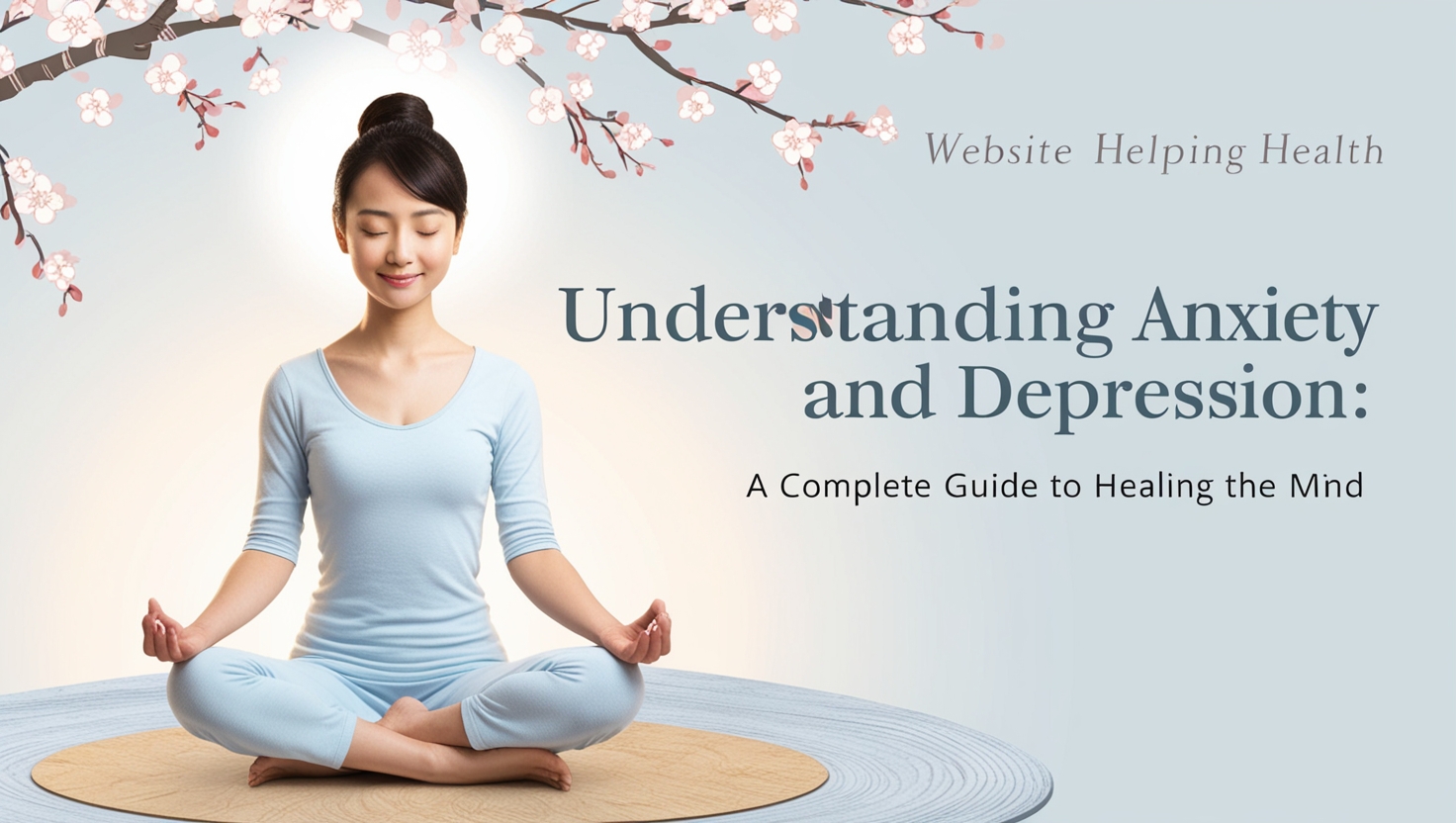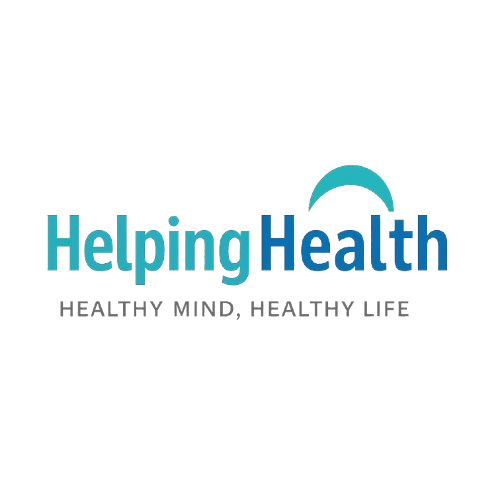
Understanding Anxiety and Depression: A Complete Guide to Healing the Mind
Mental health is just as important as physical health, yet many people continue to neglect it. Two of the most common challenges people face today are anxiety and depression. These conditions are not just fleeting emotions; they are serious concerns that affect millions of people worldwide.
Anxiety brings overwhelming fear, racing thoughts, and constant worry, while depression often leaves individuals feeling hopeless, fatigued, and unmotivated. The good news is tha
t with proper awareness, lifestyle changes, and professional guidance, people can manage these conditions and live healthier, more fulfilling lives.
This comprehensive guide explores the signs, causes, and treatments for anxiety and depression, alongside practical coping strategies to regain mental well-being.
What Are Anxiety and Depression?
-
Anxiety: A heightened state of worry or fear that may interfere with daily life. It can show up as panic attacks, social anxiety, or generalized anxiety disorder.
-
Depression: A persistent feeling of sadness, loss of interest, or emptiness that affects mood, energy levels, and overall quality of life.
While they are different conditions, anxiety and depression often occur together. Many individuals suffering from depression also experience symptoms of anxiety, creating a cycle that makes recovery more complex if left untreated.
Common Symptoms
Anxiety
-
Rapid heartbeat
-
Sweating or trembling
-
Restlessness and irritability
-
Trouble concentrating
-
Sleep disturbances
Depression
-
Loss of interest in activities once enjoyed
-
Fatigue and low energy
-
Feelings of guilt or worthlessness
-
Changes in appetite or weight
-
Thoughts of self-harm or hopelessness
Recognizing these symptoms early is the first step toward healing.
Causes and Risk Factors
Mental health conditions rarely have a single cause. Instead, they arise from a combination of factors:
-
Biological factors – Imbalances in brain chemicals like serotonin, dopamine, and norepinephrine.
-
Genetics – A family history of anxiety or depression can increase risk.
-
Environmental stress – Traumatic events, job stress, or relationship problems.
-
Medical conditions – Chronic illnesses and certain medications can trigger symptoms.
-
Lifestyle habits – Lack of sleep, poor nutrition, or substance abuse may worsen mental health.
Why Early Intervention Matters
Ignoring symptoms can worsen anxiety and depression, making them harder to treat. Early intervention can:
-
Reduce the severity of symptoms
-
Prevent further complications like substance dependency
-
Improve relationships and work performance
-
Enhance overall quality of life
Seeking help early is not a weakness—it is a sign of strength.
Treatment Options
1. Therapy
-
Cognitive Behavioral Therapy (CBT): Helps reframe negative thought patterns.
-
Exposure Therapy: Useful for phobias and panic disorders.
-
Interpersonal Therapy (IPT): Focuses on improving communication and relationships.
2. Medication
-
Antidepressants such as SSRIs and SNRIs help regulate mood.
-
Anti-anxiety medications provide short-term relief for severe cases.
-
Always consult a licensed healthcare provider before taking medication.
3. Lifestyle Changes
-
Exercise: Physical activity releases endorphins that naturally boost mood.
-
Balanced diet: Omega-3 fatty acids, whole grains, and leafy greens support brain health.
-
Adequate sleep: Restorative sleep is essential for emotional balance.
4. Mindfulness and Relaxation
-
Meditation and yoga calm the nervous system.
-
Deep breathing reduces stress responses.
-
Journaling helps track emotional triggers.
Practical Coping Strategies
-
Build a Support Network – Share feelings with trusted friends or family.
-
Limit Stimulants – Reduce caffeine and alcohol, which can worsen anxiety.
-
Practice Gratitude – Focus on small daily positives to shift perspective.
-
Break Tasks Into Steps – Small goals prevent overwhelming feelings.
-
Seek Professional Help – A mental health professional can provide customized guidance.
The Role of Nutrition in Mental Health
Food doesn’t just fuel the body—it also influences the brain. Studies show that:
-
Probiotics improve gut health, which is linked to better mood regulation.
-
Magnesium-rich foods such as spinach and almonds reduce anxiety.
-
Vitamin D from sunlight and fortified foods combats depression symptoms.
How Stress Management Can Help
Chronic stress is one of the strongest triggers for both anxiety and depression. Managing stress effectively involves:
-
Time management and prioritizing tasks
-
Engaging in hobbies or creative outlets
-
Practicing relaxation techniques daily
Myths and Misconceptions
-
“It’s just in your head.” Mental health issues are medical conditions, not weakness.
-
“Medication is the only solution.” Lifestyle changes and therapy are equally important.
-
“Strong people don’t get depressed.” Mental health conditions can affect anyone.
When to Seek Immediate Help
If someone experiences:
-
Thoughts of self-harm
-
Inability to perform daily activities
-
Severe panic attacks
It is crucial to seek immediate professional support or call emergency services.
Frequently Asked Questions
Q: Can lifestyle changes alone cure depression and anxiety?
Lifestyle improvements can significantly reduce symptoms, but professional treatment may still be needed.
Q: How long does treatment take?
Recovery varies—some people see improvement in weeks, while others need months or ongoing care.
Q: Is it possible to prevent anxiety and depression?
While not always preventable, practicing stress management, healthy eating, and staying socially connected can lower risk.
Conclusion
Anxiety and depression are serious yet manageable conditions. By understanding symptoms, seeking timely help, and incorporating healthy lifestyle habits, it is possible to regain balance and improve quality of life.
Taking the first step—whether that’s speaking to a doctor, joining a support group, or practicing mindfulness—is the most powerful action toward healing. Mental health matters, and every step taken toward recovery is a victory.
